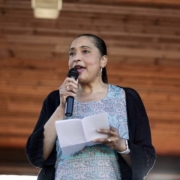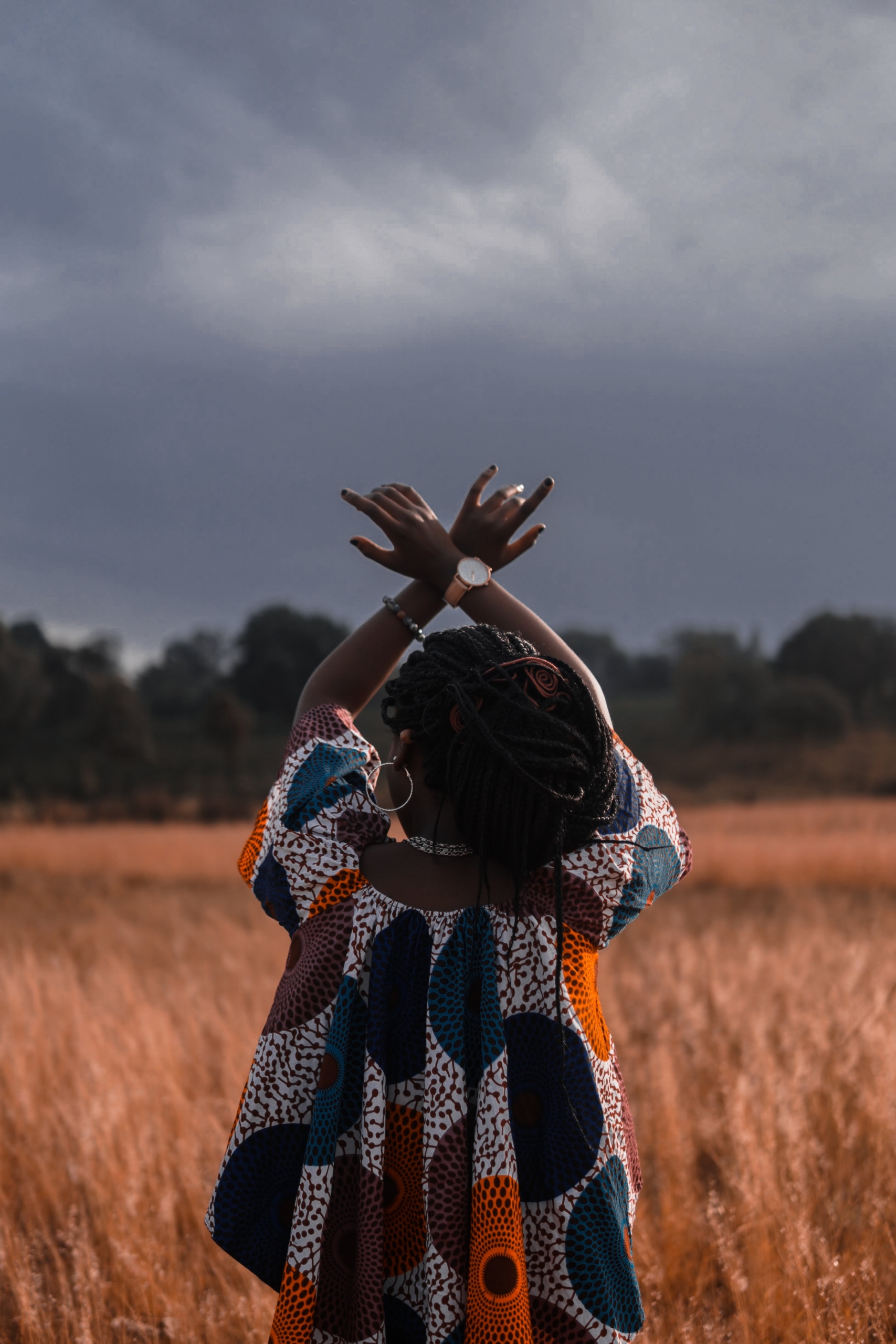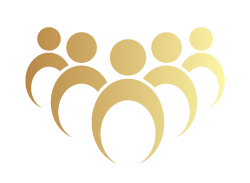Verona March for Racial Justice
June 17, 2020
Good evening.
As the events of the recent months and days have unfolded—Coronavirus, the killing of Black men and women, and the hateful threat to Christian Cooper, my thoughts and emotions have wandered from deep despair to anger to frustration. I’ve seen and heard about incidents like these numerous times over the course of my life.
So, I try to guard myself from feelings of numbness and futility. I wade my way through the concern for my husband and sons … knowing, but for the grace of God, they could have been Treyvon Martin, Ahmaud Arbery, or George Floyd. Or, I could have been Sandra Bland or Breonna Taylor.
I am glad about the outrage and interest and protests from people … people who don’t look like me. But, I am also conflicted about the fact that it took seeing a man murdered in broad daylight for people to engage … to finally see what we’ve been saying … what we’ve been living for over 400 years in this county.
People are now asking questions because they are frustrated, disheartened, challenged and perhaps even convicted by what they see happening around the nation. They ask because they fear what could happen next. They wonder about their own complicity, if they say or do nothing. They question whether or not their voices or actions really matter when it comes to solving what seems impossible to resolve.
I can’t speak for every Black person. I can only speak for myself. And my answer is this: Yes, it matters. It matters when you stop and take note of what it is like to be Black in America. It matters when you protest. It matters when you use your voice. It matters when you show up. It matters when you take steps to engage and partner in doing whatever you can with your influence, your power, your privilege and your resources to eradicate the evil of racism and eliminate senseless killing of Black people, and the discrimination, racial and ethnic bias, assaults, insults and aggressions against Black people. It matters when you extend yourself in friendship and allyship to the just causes of civil rights, human rights, equity and inclusion.
As individuals and leaders discerning a right response to the injustices wrought from discrimination, racism, cynicism, anger, fear and division, begin with self-examination. Know that your biases affect what you think and do. Consider the consequences. Look for connections versus focusing on difference. Examine ways you can use your privilege and resources to be part of the solution to end racial inequity.
After you’ve done the self-work or while you’re doing it, take a look at what is happening around you. If you look, you will see the poverty, disparate educational, health and socioeconomic conditions. If you open your eyes and look, you can see the injustices and inequities in the criminal justice system and housing and employment practices. Don’t look away. Don’t ignore it. Get in the fight. It matters.
Commit to racial justice. Wherever you have influence—in your home, community, schools, workplace, marketplace, government, place of worship—use it to make those places free from racial discrimination and harassment, bias, and aggression.
Respond when issues of discrimination or harassment arise and take proactive measures to monitor for and prevent them. Say something–Do something. It matters. Don’t let those jokes, slights and insults slide by. Be an ally. Be a voice for the oppressed. Be a voice for change.
Be willing to purposefully identify, discuss and challenge issues of race and color and the impacts they have on people and in your neighborhoods, schools, and workplaces. Challenge yourselves to understand and correct any inequities you see. Shift your perspective to see that racial equity is a journey worth embarking upon and a journey that will benefit the good of all of people in society.
Without a willingness to grapple with the impact of racial bias and talk about the effects of systemic racism along with the effects on our decision-making, engagement with one another, policies, practices, education, housing, healthcare and jobs—progress is fleeting when it comes to eliminating racism.
Racism is insidious and it corrupts. It threatens. Racism is just plain wrong.
To everyone here today, recognize that it matters what you do and say. Your presence and action matters. So, use your voice, power, privilege, resources and influence. Don’t watch another Black person die—and act to end racism.
If you’ve gotten anything at all out of what I have said this evening—if unity and love and dignity and respect have made any difference in your life—if being in community means anything to you—if you have a heart—and a brain—eyes to see and ears to hear—if you care— then do me a favor:
- Stand for justice—better yet fight for justice
- love each other, be deep-spirited friends
- don’t push your way to the front
- don’t always have to be right
- put yourself aside, and help somebody else get ahead
- don’t be obsessed with getting your own advantage
- forget yourself long enough to lend a helping hand to someone else
- make the hard choices, take the tough actions
- agree to think better, do better and be better
And, end racism now.









